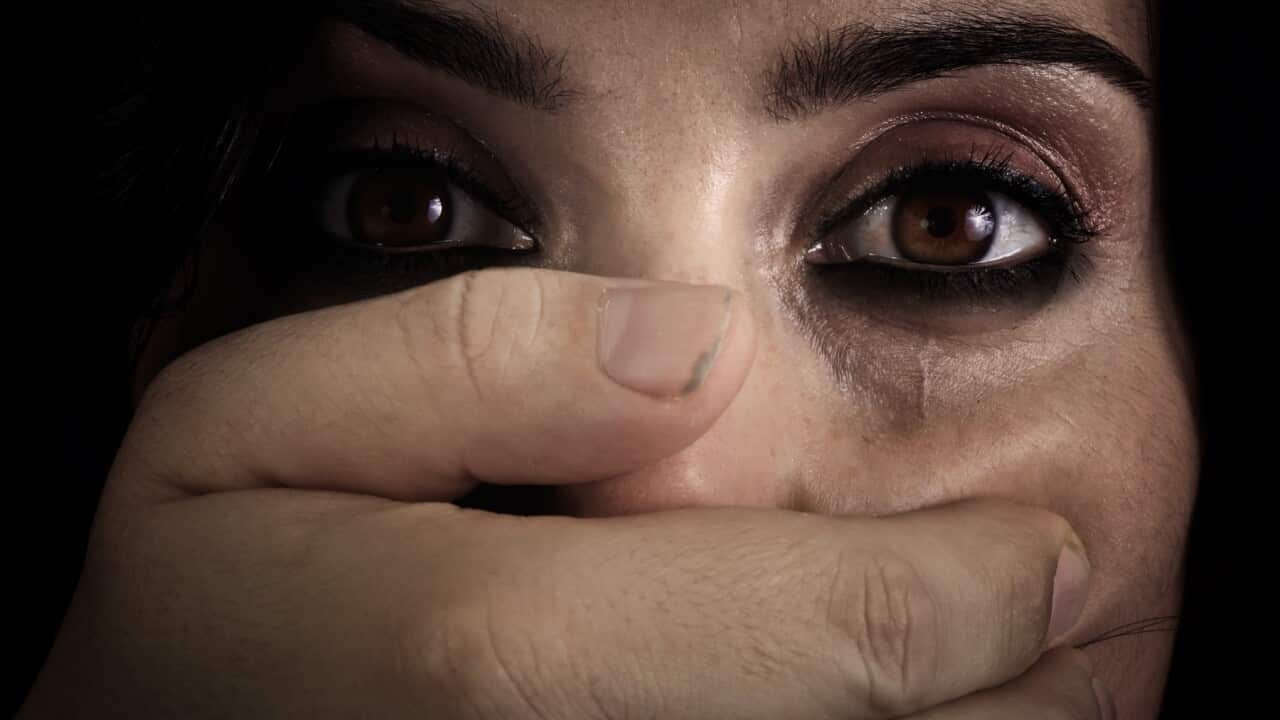English
Sound therapy is making waves.
Or to be more precise, sound waves.
Sound baths are a meditative body-mind practice, and it has gained in popularity, so much so, that it is now one of the hottest classes in California's booming wellness industry.
It is increasingly being offered at retreats, clinics, studios and privately.
Sound Bath practitioners say it can unblock energy and compare it to immersing yourself in a water bath.
The aim is to create specific frequencies of sound that are believed to induce a fully relaxed state.
Ken Best works for ManyLevels Healing, and he witnesses the success of sound therapy:
"There are a lot of people today, because of the pandemic, everything else we've been going through, have had such difficulty dealing with the stressors in their life, and causing anxiety and brain fog and so they can't think clearly, and we find that the sound baths really helps them focus, gain back that collective thought that they're trying to get to, and also relieve anxiety at the same time."
At the beginning of 2022, a study by the Anxiety Disorders Research Program of Georgetown University found mindfulness meditation worked as well as a standard drug for treating anxiety.
The study tested a widely used mindfulness program that includes two and a half hours of classes weekly and 45 minutes of daily practice at home.
Participants were randomly assigned to the program or daily use of a generic drug used for depression and anxiety.
After two months, anxiety as measured on a severity scale declined by about thirty percent in both groups and continued to decrease during the following four months
Raphael, who uses sound therapy, praises its effect:
"I really think that this would be a great help for humanity because a lot of people, they don't stop, and they just keep going and living life day to day, so giving ourselves time to actually reflect and allowing ourselves to surface out these struggles that you are going through, and not just these struggles, but good things as well."
Some practitioners use Native American drums designed for tribal spiritual rituals.
Others use a Tibetan bell and scepter, two instruments used for Tibetan Buddhist ritual recitation, or handmade gongs.
Deandre Sinette, a yoga teacher, sums up the experience:
"Sound therapy in my body feels like this deep tissue massage in every area of my body, especially in my heart spaces. I've been going through a lot, when I get down on my mat and allow the singing bowls to move into me, it feels like this deep, powerful wave of relaxation”.
Italian
La terapia del suono sta producendo onde.
O, per la precisione, onde sonore.
I bagni sonori sono una pratica meditativa per il corpo e per la mente, ed hanno acquistato così tanta popolarità che adesso sono tra le lezioni più richieste nella crescente industria del benessere in California.
Vengono offerti sempre più frequentemente in oasi, cliniche, studi, ed anche privatamente.
I praticanti di bagni sonori dicono che possono sbloccare l’energia, e li paragonano ad un’immersione in acqua.
Lo scopo è quello di creare precise frequenze sonore che si pensa inducano ad uno stato di rilassamento totale.
Ken Best lavora per ManyLevels Healing, e testimonia il successo della terapia sonora:
"There are a lot of people today, because of the pandemic, everything else we've been going through, have had such difficulty dealing with the stressors in their life, and causing anxiety and brain fog and so they can't think clearly, and we find that the sound baths really helps them focus, gain back that collective thought that they're trying to get to, and also relieve anxiety at the same time."
All’inizio del 2022, uno studio del programma di ricerca sui disturbi dell’ansia della Georgetown University ha rivelato che la meditazione di consapevolezza funzionava bene quanto un farmaco usato per il trattamento dell’ansia.
Lo studio aveva testato un programma di consapevolezza molto diffuso, che include lezioni settimanali di due ore e mezza e 45 minuti di pratica a casa.
I partecipanti venivano destinati in modo casuale o al programma, o a un dosaggio quotidiano di un farmaco generico usato contro la depressione e l’ansia.
Dopo due mesi, l’ansia misurata secondo una scala di gravità era diminuita del 30% in entrambi i gruppi, e ha continuato a scendere nei successivi quattro mesi.
Raphael, che ha usufruito della terapia sonoro, ne ha elogiato gli effetti:
"I really think that this would be a great help for humanity because a lot of people, they don't stop, and they just keep going and living life day to day, so giving ourselves time to actually reflect and allowing ourselves to surface out these struggles that you are going through, and not just these struggles, but good things as well."
Alcuni terapeuti usano percussioni native americane concepite per riti tribali spirituali.
Altri usano una campana tibetana e lo scettro, due strumenti usati nelle pratiche rituali dei Buddisti tibetani, o anche dei gong fatti a mano.
Deandre Sinette, un’insegnante di yoga, riassume l’esperienza:
"Sound therapy in my body feels like this deep tissue massage in every area of my body, especially in my heart spaces. I've been going through a lot, when I get down on my mat and allow the singing bowls to move into me, it feels like this deep, powerful wave of relaxation”.
Report by Julien Oeuillet for SBS News.
Ascolta tutti i giorni, dalle 8am alle 10am. Seguici su , e o abbonati ai nostri podcast cliccando .




